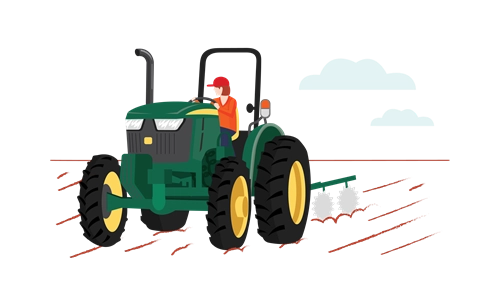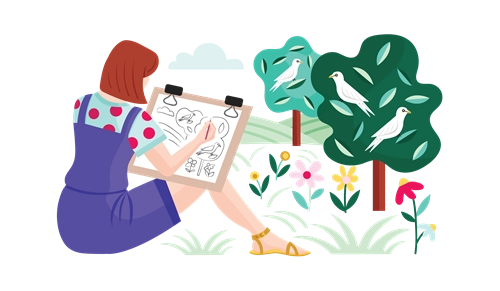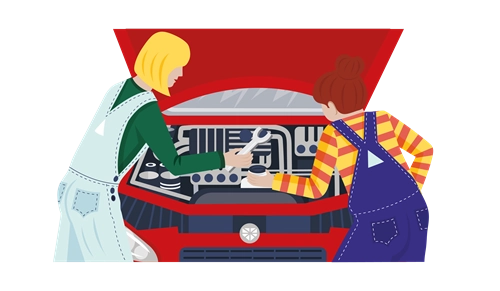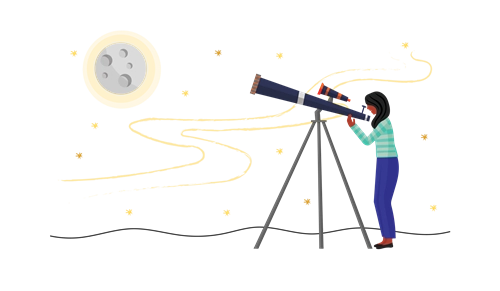Raffaella Demichelis
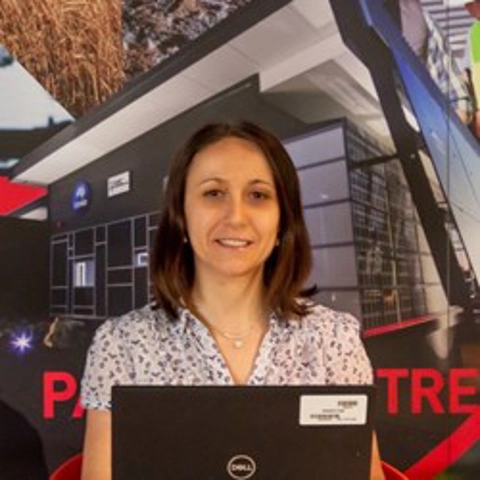
Raffaella Demichelis
Senior Research Fellow
"There is always something to learn in every situation. Many of my best outcomes and most creative ideas are the result of overcoming difficulties I did not expect."
Show pathwayFavourite school subjects
- Chemistry
- Science
Higher education choices
- Bachelor of Science, Chemisty
- Doctor of Chemical Science
Career path in STEM
- Post-doctoral research fellow
- Chair of Early and Mid-career research forum at Australian Academy of science
- Associate Professor at Curtain University
When I grew up I wanted to be a chemist. At the age of 12 I saw a picture of the atoms in water and got fascinated by how water molecules reorganize when transitioning from gas to liquid to solid and back. After then, all I could think of was learning more about atoms, those tiny particles that make up everything.
A curious and headstrong child
Dr. Raffaella Demichelis has an interest in science since as far ago as she can remember.
As most children, she was born curious and her parents never failed to provide her with books about nearly everything. She was fascinated by numbers and how they combine. She was curious about why you can melt and “unmelt” chocolate but you cannot cook and uncook eggs. She was wondering about deep sea and deep Earth, inquisitive about the sky. Growing up, she had no doubt she wanted to pursue a career in STEM.
She still remembers the day she came across a ball and stick representation of a water molecule, with its two white hydrogen and one red oxygen atoms prettily arranged. She was around 12 years old. At school, she learnt about how water molecules rearrange during phase transitions, that is when passing from solid to liquid to gas and viceversa. She got so fascinated that she spent the rest of the day learning all the elements of the periodic table and their symbol, and decided that chemistry was going to be her future.
Though she had to face a number of people in her personal network claiming that chemistry was not for a girl, “I never allowed anyone to tell me who I am or who I should be” – she says. At the age of 12 she decided that she wanted to study chemistry at university, and by the time she enrolled she already knew she wanted to get a PhD and do research.
A PhD in Italy and a career in Australia
After doing a few research projects in analytical chemistry, working mostly on water and food quality, that pretty picture of a water molecule was still in her heart and was calling for more theory and more physics. So she had no doubts that the Theoretical Chemistry group at the University of Torino (Italy) was the best place to do her PhD.
“I had so much fun and so much pain at the same time!” – she says – “I learnt a lot, failed a lot, and achieved a lot.” Indeed, she spent three very productive years working with a fantastic team developing a software able to model materials structure and properties. She contributed to develop parts of this code, while studying a variety of materials and minerals, including aluminium hydroxides and inorganic nanotubes.
After a short research contract in the same group, she decided to follow her dream of travelling the world. She started looking for a job in the furthest and most unlikely places to go, applying for a post doc in one of the top groups in the world doing molecular simulations, at Curtin University, Perth. Her application was successful, and that’s how she migrated to Australia.
“It was difficult at first. Cultural difference is a heavy invisible burden to carry that at times can seem unbearable.” – she says. While originally she came to Australia for a 3-year contract, she was offered more opportunities and decided to make Perth her home. Her husband was incredibly supportive and decided to leave everything behind and move to Australia too.
Since 2013, she is working as an independent research fellow and in 2018 she received funding from the Australian Research Council that are allowing her expanding her research group.
Dr. Raffaella Demichelis’ research
Dr. Demichelis uses "supercomputers", huge computers as powerful as thousands of laptops all together, to run calculations that predict how materials and chemicals behave: do they transform into something else? would they explode? what happens if temperature increases? would they dissolve in water? can they harvest pollutants from our atmosphere?
These calculations are extremely helpful at understanding things that are too small to be seen or too dangerous or difficult to manage in the real world. They can also be used to test, let's say, 1000 possibilities and then select the 5 most likely and see whether they work experimentally - which can save time and money.
Investigating how minerals form in systems as diverse as coral reefs and the human body, and how they interact with various chemicals is the focus of Dr. Demichelis’ research. Harnessing and mimicking the rich chemistry observed in our environment offers insights into, amongst other things, the mechanics of carbon dioxide sequestration and coral reefs preservation; how kidney stones, bones and shells form; and how to control scale formation in industry.
She also contributes to the development of software and computational tools for the simulation of minerals that are used by many academic and non-academic research laboratories worldwide.
When asked what aspect of her job she enjoys most, she replies: “What I enjoy most, other than the neverending learning opportunities that my job offers, is the collaborative aspect of science: intercultural, international, and personally enriching.”
A passion for community building and science communication
Aside from her academic duties, which also involve teaching, Dr. Demichelis cultivates a passion for community building activities, science communication and outreach. Since she arrived in Australia, she has been involved in numerous initiatives. These include delivering activities in primary schools aimed to link maths and science as part of the Scientists and Mathematicians in Schools network and presenting at several career events aimed to high school students. She co-initiated networks in her home state, Western Australia, aimed to teach digital skills to PhD students and ECRs that can make their research faster, more reproducible and more accurate.
At home, she enjoys developing STEAM activities with her daughter that she disseminates through social media. She is fascinated by the arts being a fantastic mean to introduce STEM contents to young children, as well as contributing to their motor and cognitive development more broadly. She is also fascinated by how much science you can learn through cooking and vice versa.


